World's first portable computer weighs 60 pounds, is built like a tank, and runs only on AC power.
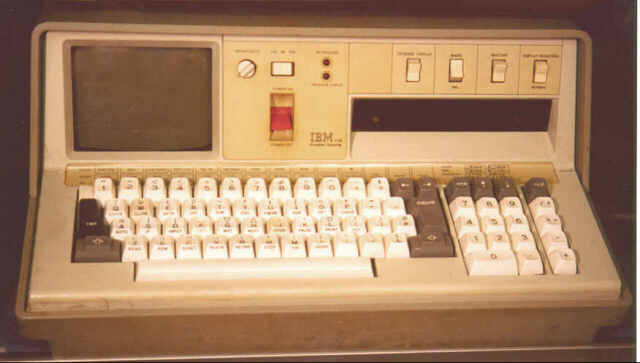
[ Home | FAQ | News | Contents | Indexes ]
Indexed Chronologically.
![]() 1975
- The IBM Model 5100
1975
- The IBM Model 5100
World's first portable computer weighs 60 pounds, is built like a
tank, and runs only on AC power.

![]() 1980 -
The HP 85
1980 -
The HP 85
Almost a clone of the IBM 5100, the HP 85 is smaller, lighter,
and adds a built-in thermal printer. It also runs only on AC
power.
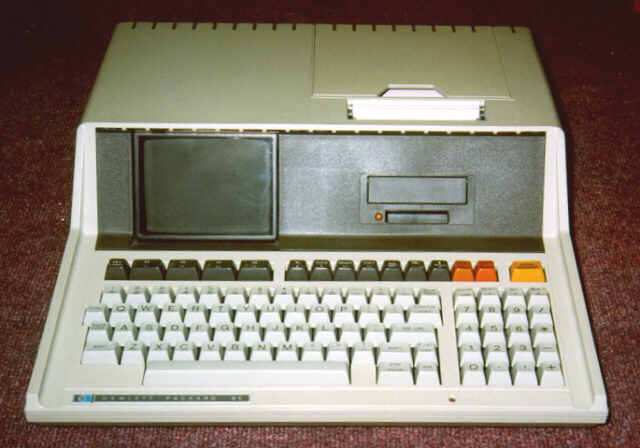
![]() 1981
April - The Osborne 1
1981
April - The Osborne 1
Floppy disk drives replace tape drives, and the keyboard is now
separate. The Osborne 1 may be considered the first true portable
due to its protection of the keyboard and display. A battery pack
is an option.
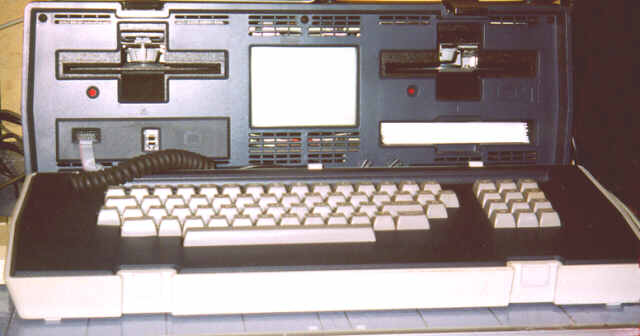
![]() 1981
November - The Epson HX-20
1981
November - The Epson HX-20
Hardly a full-function machine with its tiny LCD display, the
HX-20 is the world's first "notebook" computer. It
includes a micro-cassette drive and thermal printer.
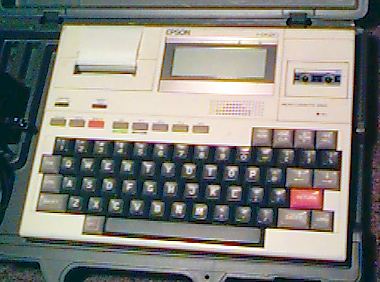
![]() 1982
November - The Compaq PC
1982
November - The Compaq PC
Compaq beats IBM to the punch by producing not only a flawless
clone of the IBM PC, but one that's portable to boot!
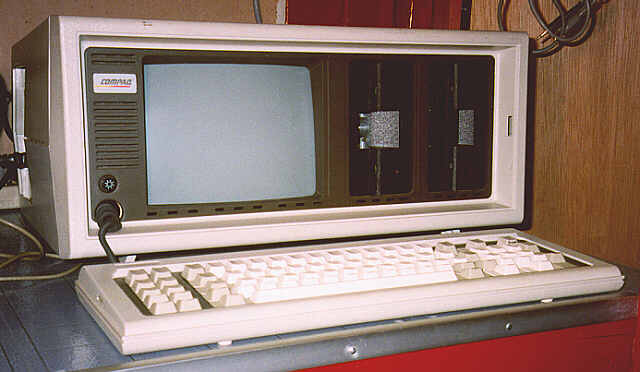
![]() 1983
March - The Radio Shack
TRS-80 Model 100
1983
March - The Radio Shack
TRS-80 Model 100
The Model 100 has word processing and Microsoft BASIC in ROM. It
sells very well and remains in Radio Shack's model lineup for
years.
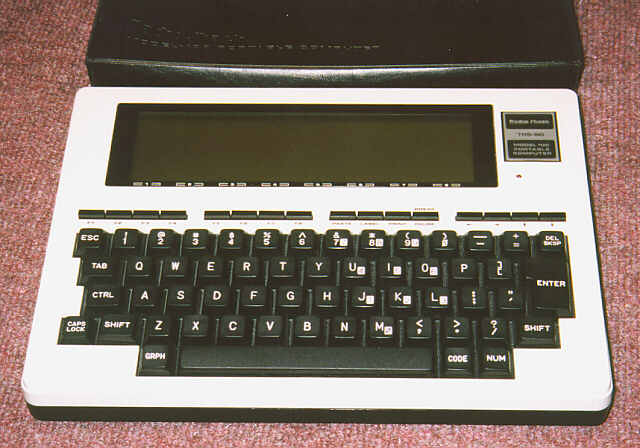
![]() 1983
November - The Epson PX-8
1983
November - The Epson PX-8
An evolution of the HX-20, the PX-8 has a larger, flip-up display
and CP/M in ROM.
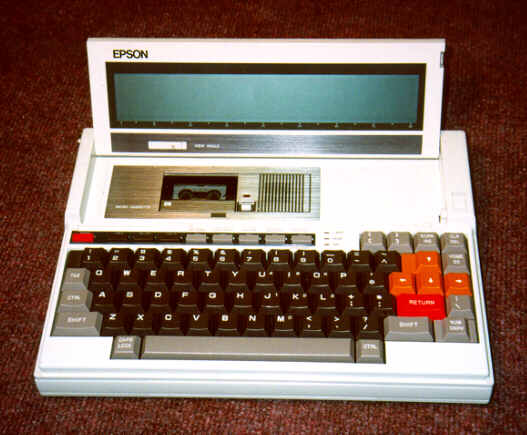
![]() 1984
February - The IBM Portable
PC
1984
February - The IBM Portable
PC
IBM puts its regular PC motherboard in a luggable case with a
monitor and IBM's first half-height floppy disk drives, to
compete with Compaq. It didn't last long.
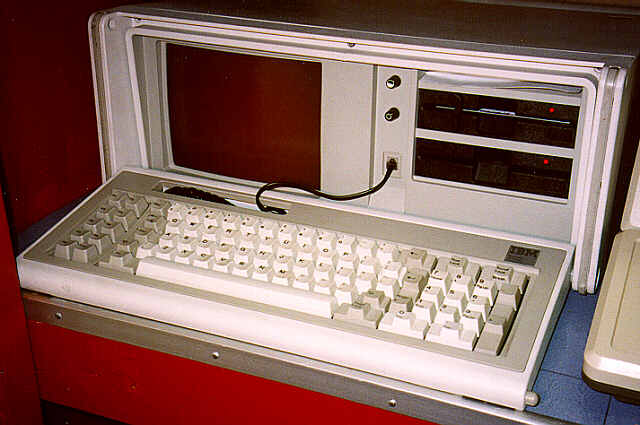
![]() 1986
April - The IBM PC
Convertible
1986
April - The IBM PC
Convertible
IBM's first laptop lends legitimacy to the PC-compatible laptop
industry, which was pioneered largely by Toshiba.
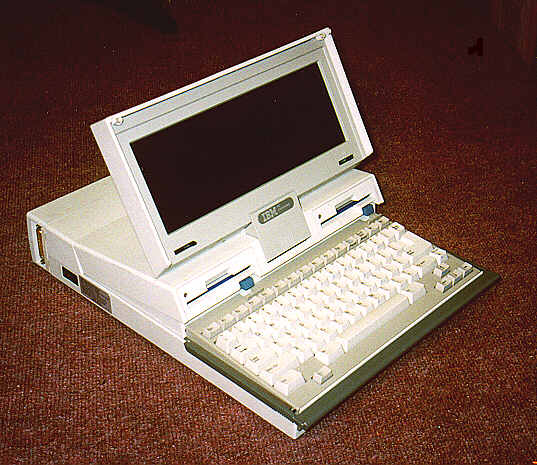
![]() 1989
September - The Apple
Macintosh Portable
1989
September - The Apple
Macintosh Portable
The first portable Macintosh, and probably the first computer
with an active-matrix (monochrome) display.
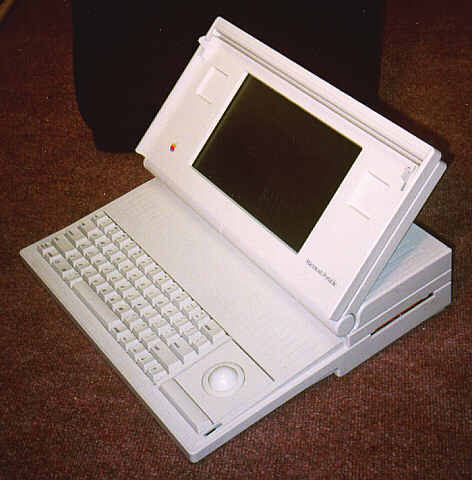
Send mail to CompanyWebmaster with
questions or comments about this web site.
Copyright © 1997-1999 CompanyLongName
Last modified: April 17, 2003